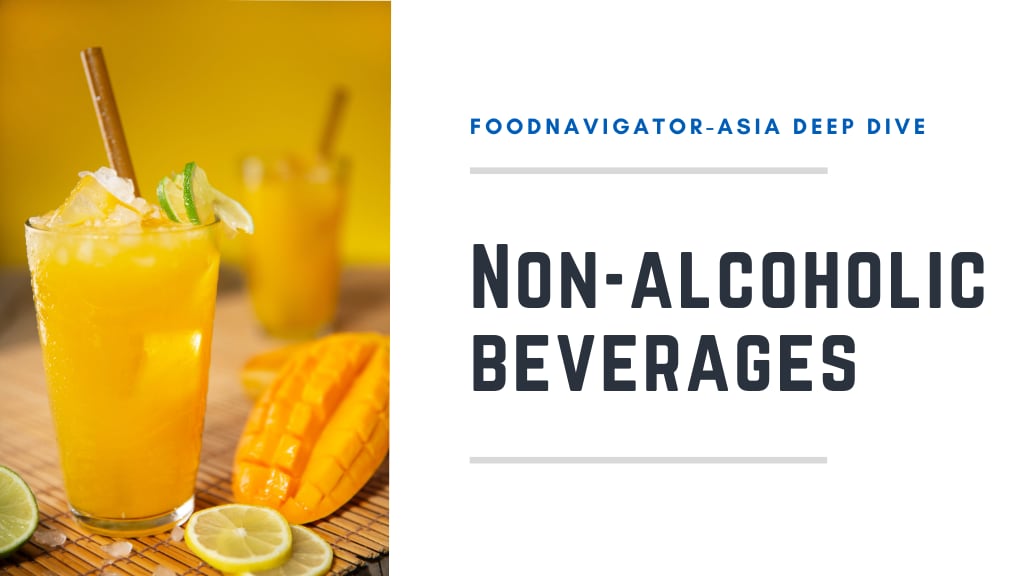Enforcement action: South Korea cracks down on use of butterfly pea flowers in foods and beverages
South Korea has cracked down on the use of butterfly pea flowers in foods and beverages, stating that consumption of the colourant is unsafe due to a lack of food safety data.
The South Korean Ministry of Food and Drug Safety (MFDS) conducted a crackdown on food firms and establishments using butterfly pea flowers as an edible ingredient for food and drinks, saying this was in violation of the national Food Safety and Sanitation Act.
“Butterfly pea flowers have not been approved for use in food under local regulations as its safety has not been proven – at present, it is mainly used for ornamental purposes and for colour extraction,” MFDS Minister Kim Kang-lip said in a formal statement.
Food label fight: Australian plant-based industry lambasts ‘restrictive regulations’ proposal
Australia’s plant-based sector is seeing red over recommendations from senators to restrict the use of traditional animal product terms on packs, and there could be further policy woes for firms in the cultured meat space.
Regulations to govern plant-based product labelling have been a major source of debate between the plant-based sector and traditional animal-based agricultural product industries in Australia for several years now, with Minister for Agriculture David Littleproud even hosted roundtable-style discussions since back in 2020.
The Senate Rural and Regional Affairs & Transport Committee’s Inquiry into plant-based product labelling was formally launched last year, and now have made their recommendations which have turned out to be less-than-satisfactory for the plant-based sector, with many of these recommending tougher mandatory labelling governance for the sector and the possible ban of using traditional animal-based product labels such as ‘meat’, ‘sausage’ or ‘steak’.
Reshaping the lingo of vino: Penfolds GM on modernising wine retail to drive premium sales – Exclusive interview
The international GM of Australian wine giant Penfolds has highlighted the importance of modernising retail concepts to shift consumer purchase habits from price to premiumisation, in an exclusive interview.
Amidst the COVID-19 pandemic, the alcohol industry has been one of the hardest-hit with on-trade sales particularly heavily impacted as a result of lockdown restrictions, which has made off-trade retail sales all the more important for alcohol firms.
Wine brands such as Penfolds in particular have needed to pay extra attention to upgrading their retail concepts and strategies, as the traditional method of promoting wines has always been to offer samples and tastings, a tactic which has become less plausible due to mask-wearing regulations.
Strategic success? How Mondelez is tapping into emerging middle-class markets in India, China
Major food and beverage MNC Mondelez has revealed its strategies to tap into the India and China markets, both of which have burgeoning middle-class segments with increasing disposable incomes.
Mondelez operates in more than 150 countries, netting revenues of approximately USD$29bn via brands such as Oreo, Cadbury Dairy Milk and Toblerone.
And while the chocolate and biscuit market in Asia, Middle East and Africa is already 1.4 times the size of the North American sector, population growth, income rises and digital connectivity are tipped to help this further soar.
Mondelez Chairman and CEO Dirk Van de Put said: “AMEA is a very exciting growth engine for our company today and in the future."
Fishy fraudulence: Supermarkets identified as main source of seafood adulteration in Singapore
Supermarket-bought imported seafood has been identified as the main source of seafood adulteration in Singapore, with calls for new technology to tackle the problem.
Singapore is heavily reliant on seafood as a protein and nutrition source, with an average consumption of 22kg per capita, but according to a recent Yale-NUS (National University of Singapore) study, over a quarter of this protein source could be fraudulently labelled and a potential threat to public health.
The researchers utilised DNA barcoding technology to identify the species of 89 seafood samples collected from restaurants and supermarkets across Singapore. Of these 89 samples, 23 or 25.8% were found to be mislabelled.





